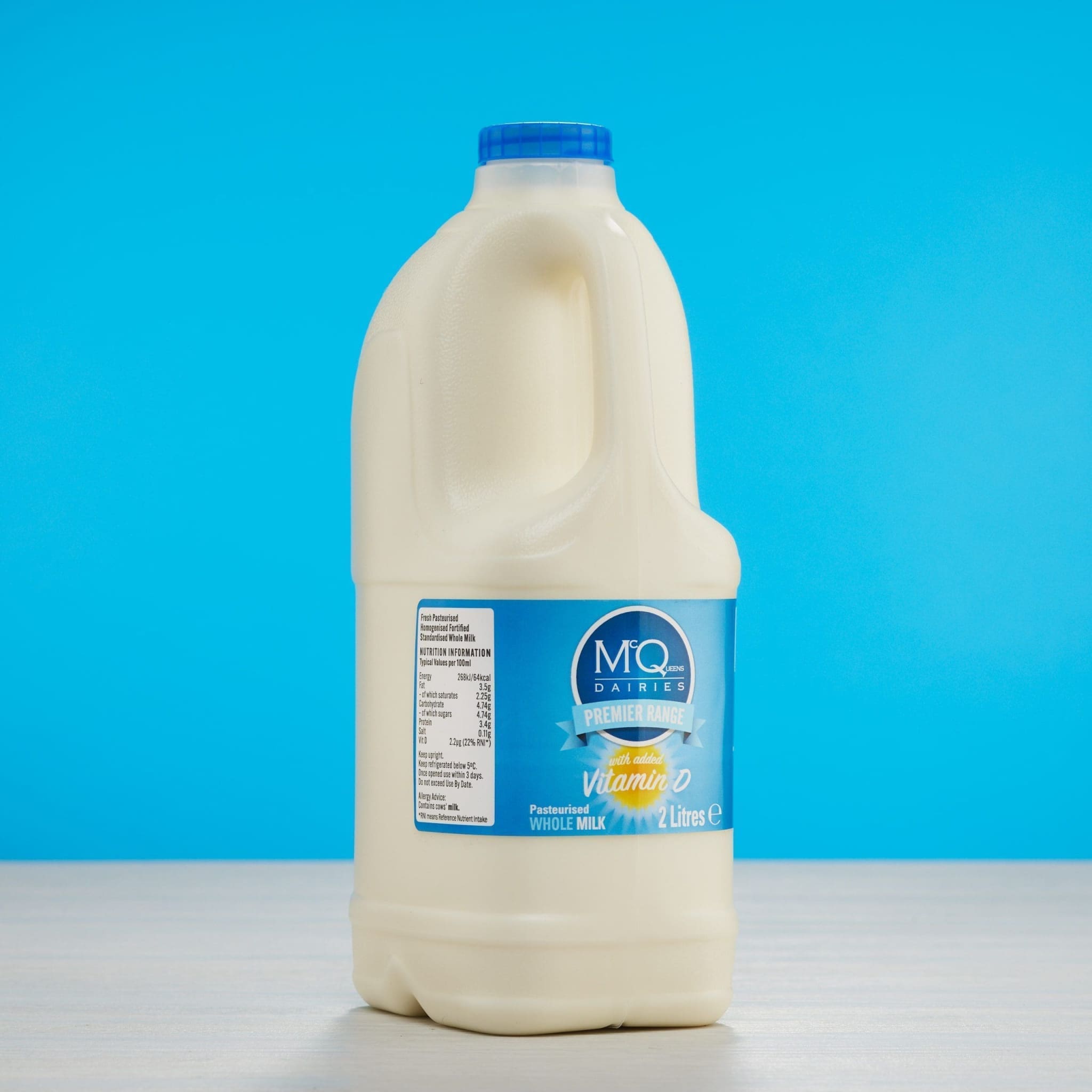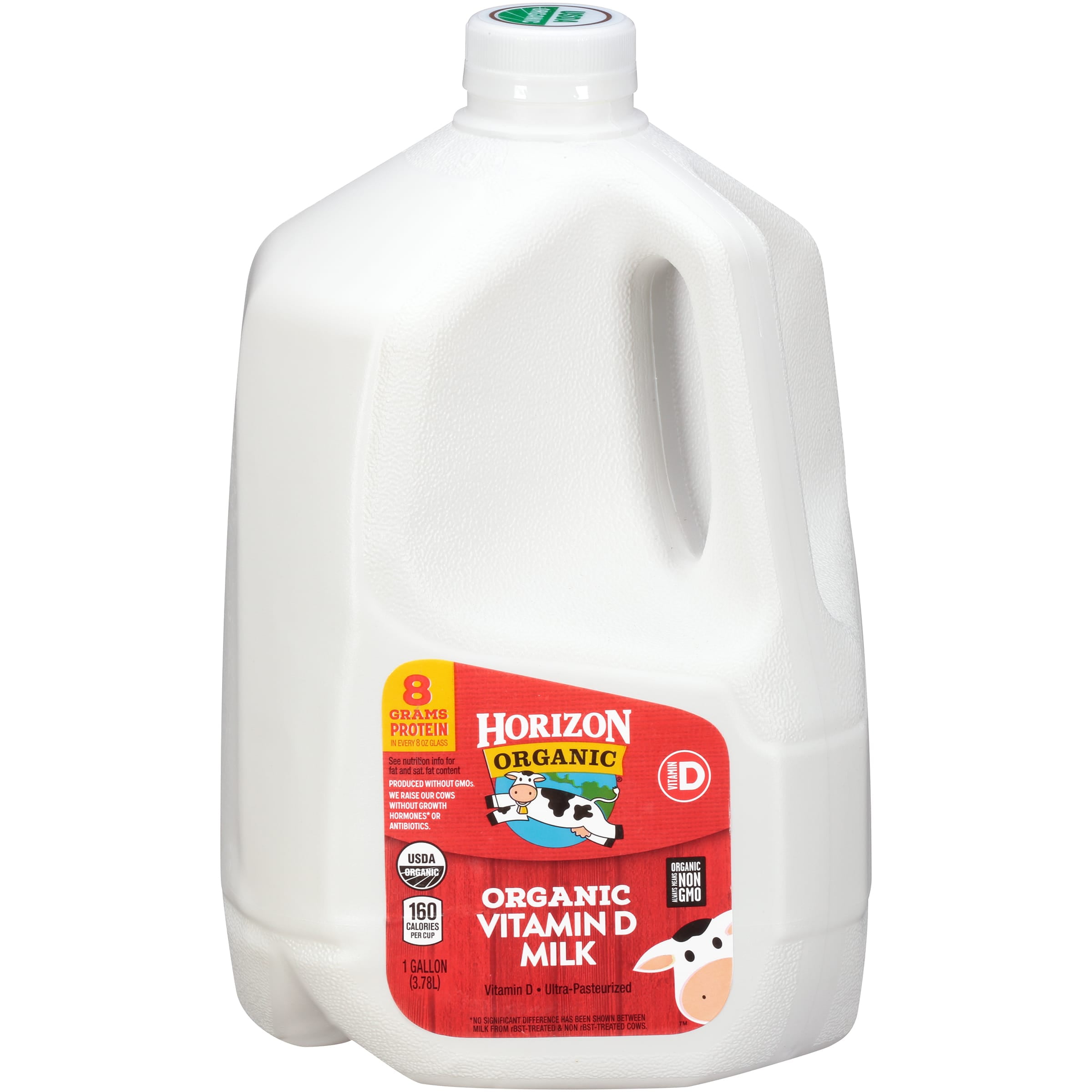You grab a carton of milk from the refrigerator, reaching for the familiar blue or orange label. But wait, there’s an intriguing new addition: “vitamin D milk.” What exactly is it, and how does it differ from your usual milk? Is vitamin D milk whole milk or something else entirely? The answer might surprise you, and the implications for your health are worth exploring.

Image: www.mcqueensdairies.co.uk
Let’s dive into the world of milk fortification, exploring the fascinating history of vitamin D and its role in maintaining healthy bones and overall well-being. Understanding the differences between vitamin D milk and regular milk, and recognizing the implications for dietary choices, can empower you to make informed decisions for yourself and your family.
Understanding Vitamin D Milk
What is Vitamin D Milk?
The term “vitamin D milk” refers to any type of milk that has been fortified with vitamin D. This includes both cow’s milk and plant-based alternatives like almond milk or soy milk. The addition of vitamin D is a public health initiative designed to address widespread vitamin D deficiency, a common concern across the globe.
Why is Milk Fortified with Vitamin D?
Vitamin D plays a crucial role in absorbing calcium from food, which is essential for building and maintaining strong bones. Without sufficient vitamin D, bones can become weak and brittle, increasing the risk of fractures, particularly in children and older adults. The process of supplementing milk with vitamin D began in the mid-20th century, aiming to combat widespread rickets, a bone disease caused by vitamin D deficiency. This initiative has had a significant impact on public health, contributing to a dramatic decrease in the incidence of rickets.

Image: www.walmart.com
Different Types of Vitamin D Milk: Whole Milk, Skim Milk, and Plant-Based Options
Vitamin D fortification applies to various types of milk:
- Whole Milk: This is the fattiest milk, containing around 3.25% fat. It’s typically richer and creamier, offering a more satisfying taste experience.
- Skim Milk: The fat content in skim milk has been reduced to less than 0.5%. This makes it a lower-calorie option and is often preferred by those seeking to limit their fat intake.
- Plant-Based Milk Alternatives: Products like almond milk, soy milk, oat milk, and others are fortified with vitamin D to provide nutritional benefits comparable to cow’s milk. These alternatives are gaining popularity among those who are lactose intolerant or have ethical concerns about animal products.
Key Considerations:
While the addition of vitamin D is a positive step for public health, it’s important to be aware that vitamin D milk is not a replacement for a balanced diet and regular sun exposure. Sunlight is the most effective source of vitamin D, triggering the body’s natural production of the vitamin. However, in many regions, especially during winter months, limited sun exposure can lead to vitamin D deficiency.
The recommended daily intake of vitamin D varies depending on factors like age, health conditions, and sunlight exposure. Consult with your doctor or a registered dietitian to determine the appropriate level of vitamin D supplementation for your specific needs.
Benefits of Vitamin D Milk
Adding Vitamin D to your diet through fortified milk offers various benefits:
1. Strong Bones and Teeth:
The most recognized benefit of vitamin D is its role in maintaining strong bones. It enables proper calcium absorption, ensuring optimal bone density and reducing fracture risk.
2. Enhanced Immune Function:
Emerging research suggests that vitamin D plays a role in supporting a healthy immune system. It helps to regulate immune cells and may contribute to reducing the susceptibility to infections.
3. Muscle Health:
Vitamin D is involved in muscle function and strength. Adequate vitamin D levels contribute to maintaining muscle mass and reducing the risk of muscle weakness, particularly in older adults.
4. Heart Health:
Recent studies link vitamin D deficiency to an increased risk of heart disease. While more research is needed, the evidence suggests that vitamin D may play a role in promoting cardiovascular health.
5. Improved Mood:
Vitamin D has been linked to mood regulation and mental well-being. Some studies suggest that adequate vitamin D levels may be associated with reduced symptoms of depression.
Choosing the Right Milk – What’s Best for You?
With the various milk options available, making the right choice for yourself and your family can seem like a daunting task. Here’s a breakdown of factors to consider:
1. Dietary Preferences and Needs:
Your choice of milk should align with your dietary preferences and needs. Consider factors like lactose tolerance, allergies, veganism, or specific dietary goals (e.g., low-fat, high-protein)
2. Taste and Texture:
Milk options vary in their richness and texture. If you prefer a creamier, more satisfying milk, whole milk might be a better choice. Skim milk is often selected for its lighter taste and lower calorie content.
3. Nutritional Considerations:
While vitamin D is essential, other nutrients in milk are also important for overall health. Whole milk is higher in fat and calories but also contains more essential fatty acids, like conjugated linoleic acid (CLA), which is linked to various health benefits.
4. Cost:
The cost of milk options varies depending on the brand, size, and type of milk. Compare prices and consider your budget when making your decision.
5. Sustainability:
If you’re concerned about sustainability, you might choose plant-based milk alternatives. Some brands are committed to sustainable farming practices and minimize their environmental impact.
Making Informed Choices
Ultimately, the best type of milk for you is a personal decision based on your individual needs and preferences. Choose the option that provides the best nutritional profile and taste for your needs while keeping sustainability in mind. Whether you opt for vitamin D whole milk, skim milk, or a plant-based alternative, ensure you’re meeting your daily vitamin D requirements through a balanced diet and healthy lifestyle choices.
Is Vitamin D Milk Whole Milk
Conclusion
Vitamin D milk plays a vital role in promoting public health, addressing the widespread need for adequate vitamin D. Understanding the different types of vitamin D milk and the benefits it provides empowers you to make informed choices for yourself and your family. By integrating vitamin D fortified milk into a balanced diet and maintaining a healthy lifestyle, you can help strengthen your bones, support your immune system, and contribute to your overall well-being.






